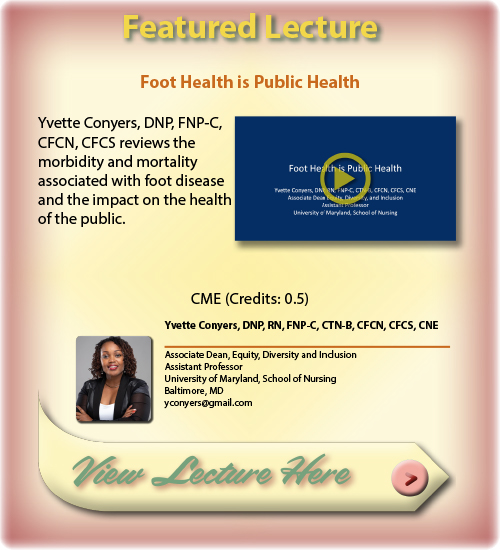
Sole Purpose 16
Long Runs, Marathon Training and Medicine
Long Runs, Marathon Training and Medicine

I was initially drawn to running because of its simplicity. The more effort I invested—whether by extending my runs or increasing my speed—the better my performance in races. Even as a child, I found excitement in pushing my body to its limits, pushing past the red line to see if I had more to give. I started running competitively in middle school and this continued all the way through college, where I ran cross country and track.
However, after graduating from college and during medical school, I became a certified hobby jogger with no strict training regimen. I continued running for exercise and to enjoy the break from studying, but never neared my red line of death. That is, until this past January during residency interviews, when a friend called saying she signed up for a marathon and I impulsively signed up WITH HER also for a full marathon, thinking, "Why not? It'll be super fun!" (Spoiler alert: it's not super fun).
While I'm knee-deep in marathon training, let me make one thing clear: this article isn't a sneaky ploy to recruit new marathoners. I've been pounding the pavement for the last five months, and let me tell you, enjoying marathon training has been a bit like trying to make friends with a cactus—it's prickly. Sure, my social media handle has always been @savlovestorun, and I genuinely do adore running. It's given me community, discipline, and a lifelong hobby where I can enjoy the outdoors. But let's be real - spending my day off panting through a three-hour run solo while choking down energy chews that taste like warm bile isn't exactly as fun as I thought it would be.
Is there a silver lining in this cloud of marathon woes? Yes, there is - the extra thinking time. Yes, long runs mean sweating buckets and cursing my life choices in the middle of some trail, but it also means having enough mental space to sort through all the junk cluttering my brain. On my last long run, my mind wandered to the uncanny parallels between marathon training and medicine and how I am truly better off from everything I have learned from both.
Marathon Tip #1: Train for at least 3 months in advance of the big day
Maybe someday I will write an article that doesn’t talk about organization, but that day is not today. When it comes to marathon training, meticulous planning and preparation are key to success on race day. My race was set for June 2nd, and I kicked off my training regimen way back in January. I crafted a detailed schedule, considering events like graduation and a friend's wedding in May, and modified my schedule for traveling and life. It's akin to gearing up for exams—you've got to get ahead of the game. Sure, there's probably that one person who could ace the APMLE with a last-minute cram session or magically run a marathon without any training, but let's face it, that's a recipe for disaster, and very few can pull it off without crashing and burning. If you take the time to plan and do a little every day, then you increase your chances of success.
Marathon Tip #2: Just make it to the next tree
When my legs are screaming, my throat feels like the Sahara, and every step is a Herculean effort, I play a mental game. I pick a landmark—a tree, a trash can, anything in sight—and tell myself, "Just get there." Once I reach it, I don't stop; instead, I spot another target ahead and repeat the process, tricking myself into pushing through to the end of my run. This tactic served me well during preclinical studies too. I'd set daily goals, focusing solely on what I had planned for that day. Each Sunday, I mapped out which lectures and topics to tackle for the week, avoiding the temptation to stress about tomorrow's workload. I had a slightly morbid mantra: "An asteroid could hit tomorrow, so today is all that matters." It kept me grounded in the present and focused on what I could control and so I only worried about the study materials for THAT day.
Marathon Tip #3: It’s always a little better with a friend
Another common theme in my articles: finding balance. Running with others can add a fun twist to your workout and make the miles fly by. I enjoy being part of a run club, surrounded by a mix of people ranging from beginners to Olympic trials contenders. However, if I have a 15-mile long run planned and the club's route is only 4 miles at a slower pace than my goal, it might not be the best fit for that day. Truly tragic but an unfortunate reality of having a schedule. I am also running my marathon with one of my best friends (she’s actually a bad friend because she convinced me to sign up on a whim) and we’ve shared a training schedule and helped keep each other accountable on long runs and complained together. She also serves as someone to bounce ideas off., She’s a call or text away and we can discuss things like fueling during our long runs or weightlifting routines to prevent injury and I know she’s going through the same thing I am.
The same principle applies to studying. Group study sessions can boost productivity and enhance learning for everyone involved. I thrive in coffee shops with my earbuds in, occasionally pausing the music to ask a quick question. It may not work for everyone, but it's been my go-to method throughout medical school, especially with my two main study buddies. But if it is a large group I have never studied with and they’re chatty and I have a final tomorrow, it might not be the best fit for that day. Know yourself and know your schedule. Much like my training partner for my marathon, I have a medical school best friend who shares in my suffering and helps keep me accountable that I am studying enough and continuing to strive for greatness.
Marathon Tip #4: You get out what you put in (more or less)
As I previously mentioned, I love the simplicity of running. As a kid, I veered towards cross country and distance events in track and field because they didn't require the height of a basketball player, the precise hand-eye coordination of a volleyball pro, the fancy footwork of a soccer star, or the rhythmic finesse of a dancer (let's just say my list of non-talents was impressively long). Running is just about taking the time to work hard no matter who you are (more or less). Additionally, at age 10, my favorite thing to do during lunch was to run laps (I was a super lame kid).
Now, medical school, that's a whole different ball game. It's like a convoluted maze where hard work pays off, but in a more twisty, turny, surprise-around-every-corner kind of way. Yet, amidst all the academic acrobatics, residency interviews stood out as a shining beacon of tangible success. I dedicated myself to studying diligently in my third year to prepare for externships, worked tirelessly during those externships, and then embarked on an intense (okay, overly intense) daily study schedule with two med school buddies for a solid month leading up to interviews. Walking out of a residency interview, confident that I was fully prepared to handle patient workups, was nothing short of the most gratifying feeling in the world.


Marathon Tip #5: Celebrate the hardest part
I'm not a fan of long, slow runs. As a college 800m runner—those grueling two-lap races known for their exquisite blend of speed and endurance—nothing gets my heart racing more than pushing myself to the limit in a shorter burst (think max 3 miles). Even during my college running days, those 90-120-minute-long runs were a struggle to enjoy compared to the burn of hill repeats or the intensity of track sessions. So, when it comes to marathon training, those long runs are my nemesis and easily the least favorite part of my weekly routine.
To cope with the marathon-long run agony, I've devised little incentives to turn them into rewards. It's the small things, like treating myself to a fancy coffee or a breakfast burrito post-long run or permitting myself to splurge a bit from my meek student/newly resident budget based on the mileage (18 miles = $36 splurge allowance on something I've been eyeing). I make these runs enjoyable by cranking up my favorite playlist, diving into a new audiobook, or daydreaming about the plants I'll buy with my hard-earned splurge money.
This strategy isn't new to me. I employed a similar tactic during medical school. Wednesdays in preclinical were brutal—packed with tough lectures and heaps of work. Initially, I dreaded these mid-week marathons of learning. But I turned them into something to anticipate. Every Wednesday, I'd treat myself to an extra fancy latte, skip my usual morning run for a shorter lifting session to free up more time, and save my favorite new TV episode for a Wednesday night dinner delight.
Marathon Tip #6: Find a deeper purpose
Both medical school and running a marathon are undeniably challenging pursuits. What drives me forward, fueled by motivation and determination, is the purpose behind my actions. For marathon training, finding my purpose was straightforward. I participated in the race to raise funds for a charitable cause, giving my miles a deeper significance. Running 26 miles for St. Jude on my 26th birthday (or close to it) was a way to celebrate my health and ability while supporting a worthy cause.
Similarly, my "why" was always at the forefront of my mind in medical school. I regularly reflected on what initially inspired me to pursue medicine and what kept that passion alive. I made lists of reasons why I wanted to keep pushing forward, ranging from small motivations to larger aspirations. I also revisited my personal statement to remind myself of my strong desire to enter medical school and become a podiatrist. Ultimately, I view it as a privilege to be a medical student, I GET to be a medical student and to be embarking on the career path that I've worked so hard for.


Marathon Tip #7: Delayed Gratification
Both medical school and marathon training share a common theme of delayed gratification. Marathon preparation involves dedicating weekends to long runs and maintaining consistent effort for months leading up to race day, where all the hard work and preparation come together in one event. It means skipping late-night events because of early morning runs, opting for healthier meals even when craving fast food to avoid stomach issues during long runs.
Similarly, medical school demands a four-year commitment, especially during our early twenties, focusing on studying, enduring late nights, and offering unpaid labor during rotations—all for the eventual reward of becoming a doctor. It's a path where our non-medical friends start their careers, build wealth, buy homes, and travel the world while we're still deep in the trenches of education and training.
However, if I were given the chance to turn back time, I would choose this journey again without hesitation. My love for podiatry and the community we serve runs deep, and I am excited to embark on my career as a podiatrist.
I hope you've enjoyed drawing parallels between marathon training and medical training. It turns out, I don't despise long runs as much as I thought initially, and I'm grateful for the increased resilience and perspective that both training experiences have given me. Ultimately, in both marathons and medicine, the training phase is undeniably the most challenging part—but it's also where we grow the most. I strongly believe anyone in medicine could do great in a marathon and that any marathon runner should maybe consider going to medical school.






























Comments
There are 0 comments for this article